Filter by
Representations of Reductive Groups
Over the last forty years, David Vogan has left an indelible imprint on the representation theory of reductive groups. His groundbreaking ideas have lead to deep advances in the theory of real and p-adic groups, and have forged lasting connections with other subjects, including number theory, automorphic forms, algebraic geometry, and combinatorics. Representations of Reductive Groups is an…
- Edition
- Ed. 1
- ISBN/ISSN
- 978-3-319-23443-4
- Collation
- -
- Series Title
- -
- Call Number
- -

Relational and Algebraic Methods in Computer Science
This book constitutes the proceedings of the 15th International Conference on Relational and Algebraic Methods in Computer Science, RAMiCS 2015, held in Braga, Portugal, in September/October 2015. The 20 revised full papers and 3 invited papers presented were carefully selected from 25 submissions. The papers deal with the theory of relation algebras and Kleene algebras, process algebras; fi…
- Edition
- -
- ISBN/ISSN
- -
- Collation
- -
- Series Title
- -
- Call Number
- -
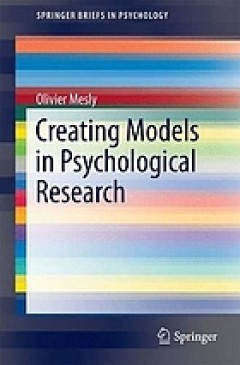
Creating Models in Psychological Research
This concise reference serves as a companion to traditional research texts by focusing on such essentials as model construction, robust methodologies and defending a compelling hypothesis. Designed to wean Master's and doctorate-level students as well as new researchers from their comfort zones, the book challenges readers to engage in multi-method approaches to answering multidisciplinary ques…
- Edition
- 1
- ISBN/ISSN
- 9783319157535
- Collation
- XXI, 126
- Series Title
- SpringerBriefs in Psychology
- Call Number
- 150

A Guide to Reproduction Social Issues and Human Concerns
The purpose of this comprehensive text is to increase awareness of human reproduction and its consequences. The central theme links reproductive capacity, the social consequences of the multiple stresses this places on the environment and the ways this relates back to the reproductive health of humans and other animals. In the first section, the biology of human reproduction is discussed, inclu…
- Edition
- -
- ISBN/ISSN
- 9780511608582
- Collation
- -
- Series Title
- -
- Call Number
- -
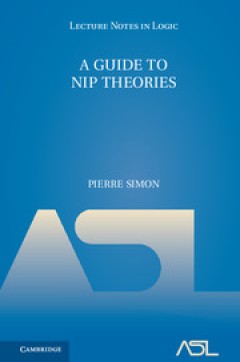
A Guide to NIP Theories
The study of NIP theories has received much attention from model theorists in the last decade, fuelled by applications to o-minimal structures and valued fields. This book, the first to be written on NIP theories, is an introduction to the subject that will appeal to anyone interested in model theory: graduate students and researchers in the field, as well as those in nearby areas such as combi…
- Edition
- -
- ISBN/ISSN
- 9781107415133
- Collation
- -
- Series Title
- -
- Call Number
- -
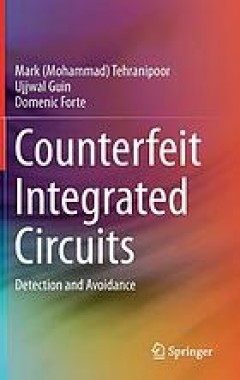
Counterfeit Integrated Circuits: Detection and Avoidance
This timely and exhaustive study offers a much-needed examination of the scope and consequences of the electronic counterfeit trade. The authors describe a variety of shortcomings and vulnerabilities in the electronic component supply chain, which can result in counterfeit integrated circuits (ICs). Not only does this book provide an assessment of the current counterfeiting problems facing both…
- Edition
- 1
- ISBN/ISSN
- 9783319118246
- Collation
- XX, 269
- Series Title
- -
- Call Number
- 621.395

Experimental Studies in Learning Technology and Child–Computer Interaction
This book is about the ways in which experiments can be employed in the context of research on learning technologies and child–computer interaction (CCI). It is directed at researchers, supporting them to employ experimental studies while increasing their quality and rigor. The book provides a complete and comprehensive description on how to design, implement, and report experiments, with a f…
- Edition
- -
- ISBN/ISSN
- 9783031143502
- Collation
- -
- Series Title
- -
- Call Number
- -
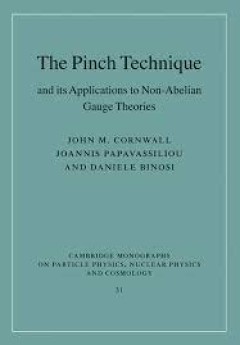
The Pinch Technique and its Applications to Non-Abelian Gauge Theories
Non-Abelian gauge theories, such as quantum chromodynamics (QCD) or electroweak theory, are best studied with the aid of Green's functions that are gauge-invariant off-shell, but unlike for the photon in quantum electrodynamics, conventional graphical constructions fail. The pinch technique provides a systematic framework for constructing such Green's functions, and has many useful applications…
- Edition
- -
- ISBN/ISSN
- 9781009402415
- Collation
- -
- Series Title
- -
- Call Number
- -
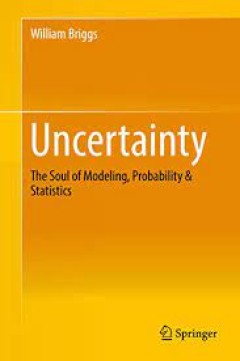
Uncertainty The Soul of Modeling, Probability & Statistics
This book presents a philosophical approach to probability and probabilistic thinking, considering the underpinnings of probabilistic reasoning and modeling, which effectively underlie everything in data science. The ultimate goal is to call into question many standard tenets and lay the philosophical and probabilistic groundwork and infrastructure for statistical modeling. It is the first book…
- Edition
- -
- ISBN/ISSN
- 978-3-319-39756-6
- Collation
- -
- Series Title
- -
- Call Number
- -

Ultrafast Dynamics of Phospholipid-Water Interfaces Studied by Nonlinear Tim…
This thesis presents a highly innovative study of the ultrafast structural and vibrational dynamics of hydrated phospholipids, the basic constituents of cell membranes. As a novel approach to the water-phospholipid interface, the author studies phosphate vibrations using the most advanced methods of nonlinear vibrational spectroscopy, including femtosecond two-dimensional infrared spectroscopy.…
- Edition
- -
- ISBN/ISSN
- 978-3-319-22066-6
- Collation
- -
- Series Title
- -
- Call Number
- -
 Computer Science, Information & General Works
Computer Science, Information & General Works  Philosophy & Psychology
Philosophy & Psychology  Religion
Religion  Social Sciences
Social Sciences  Language
Language  Pure Science
Pure Science  Applied Sciences
Applied Sciences  Art & Recreation
Art & Recreation  Literature
Literature  History & Geography
History & Geography